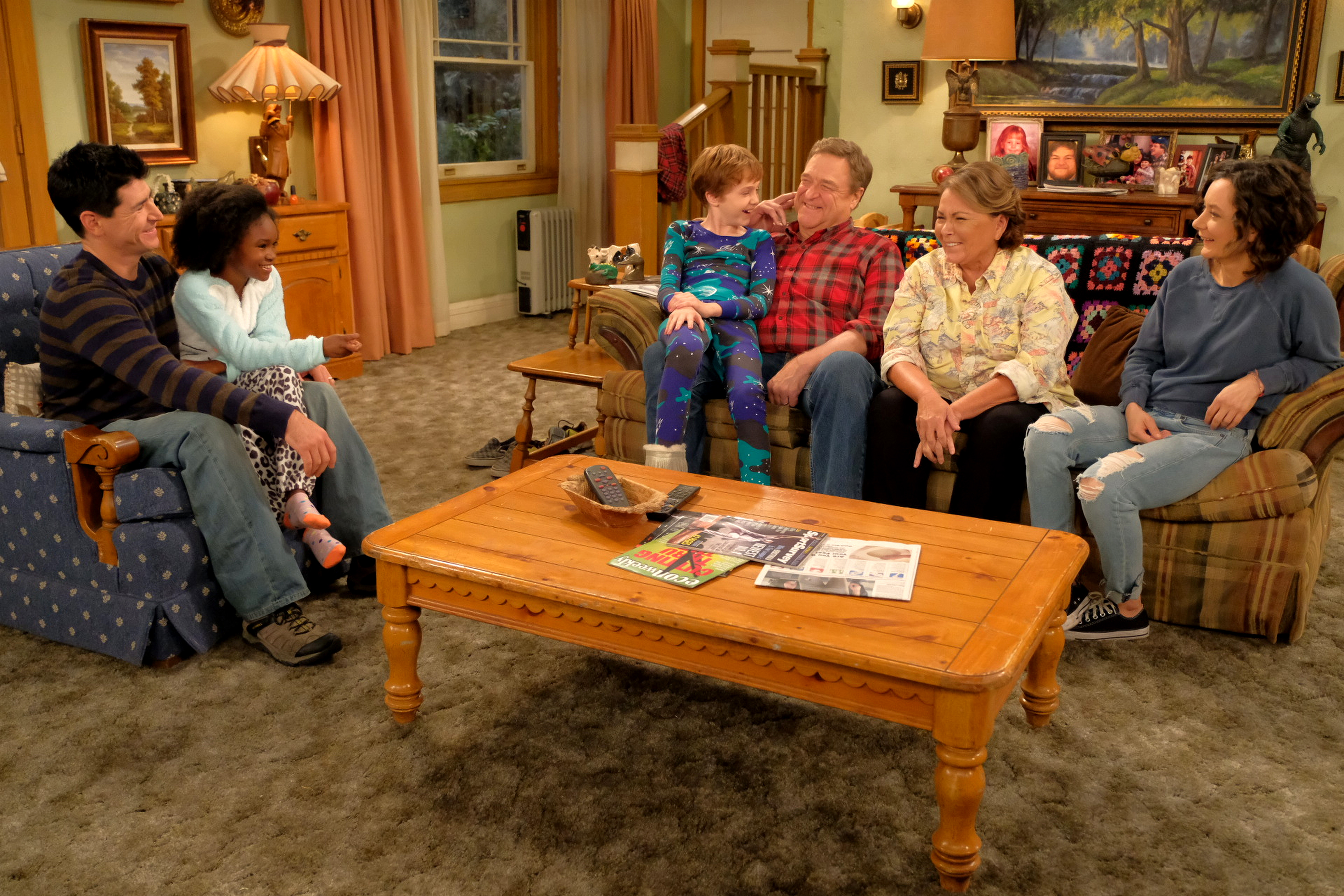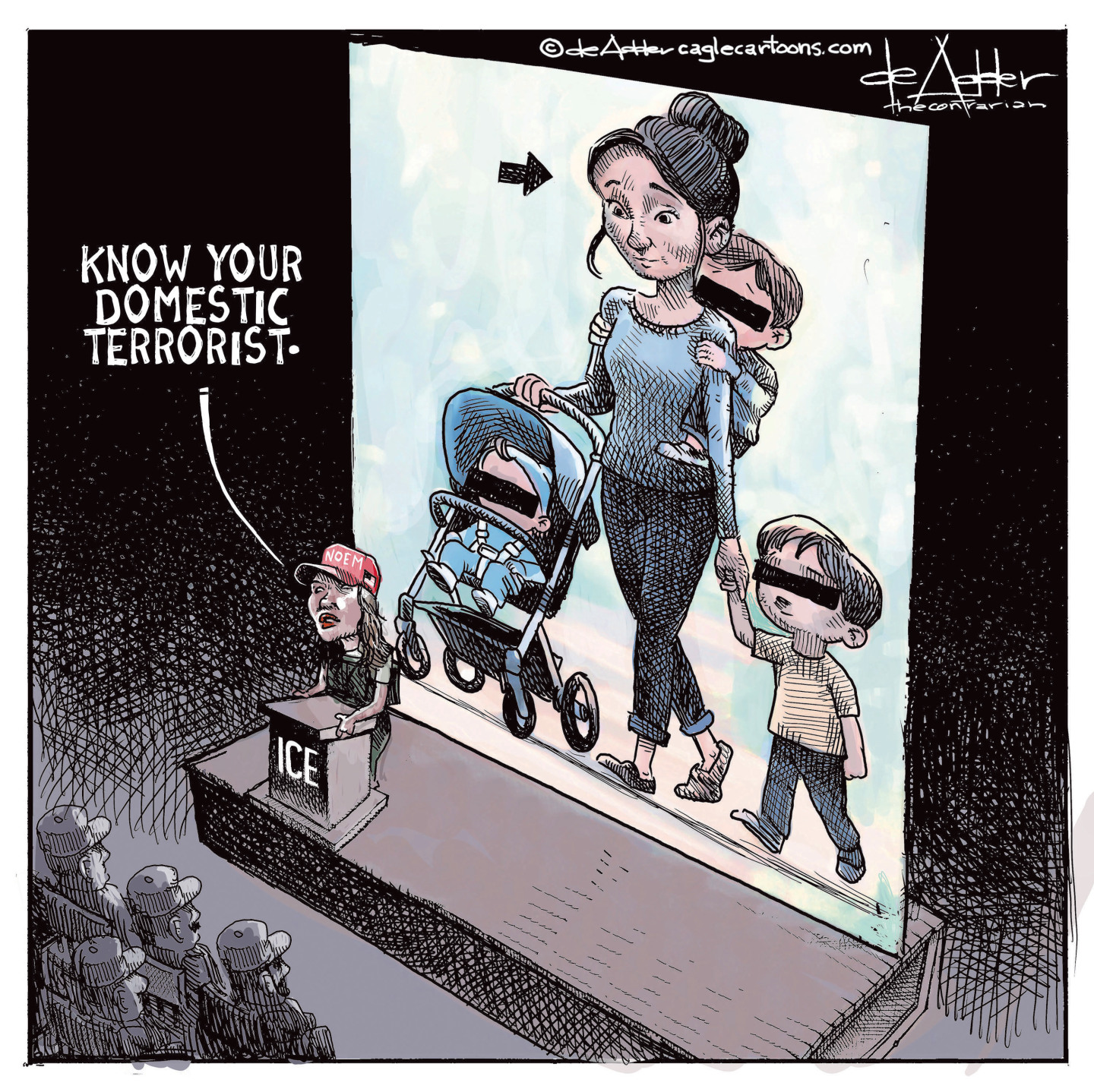The new Roseanne is unexpectedly good
How the reboot skillfully navigates its extremely difficult premise


In an ocean of mediocre reboots, we can say this about the new Roseanne: It's seaworthy.
Returning to ABC on Tuesday after a more than 20-year hiatus, the sitcom that changed everything by making the mom character loud, coarse, blue-collar, and funny (the usual role for moms was "disapproving straight man") retains much of its old magic. It's not just the couch, or the familiar contours of the Conner home, or the double-take you'll do the first time Darlene's daughter Harris walks by (you'll think it's Darlene and be puzzled when her older incarnation appears). It's the rhythms of the script and the rusty feel that makes the show feel believably worn in. Welcome to America, it says. And for a moment, despite all that's happened, the invitation feels really, unexpectedly good.
That said, the reboot might have overshot the ambiance slightly: The sitcom also feels old, and not just because of the laugh track or the punchlines. It certainly doesn't feel frozen in time the way Will and Grace does, but it also doesn't completely think through how the 21st century might have shredded the Conner lifestyle. There's a pleasant analog quality to Roseanne that makes it hard to imagine (for example) smartphones existing in the Conner home. And the reboot doesn't. Pretty much everyone in every scene is doing things: looking for guns, looking for pills, washing the dishes, talking. That no one, not even the sullen teenager, is staring at their phone might be the most nostalgic thing about this sitcom.
The Week
Escape your echo chamber. Get the facts behind the news, plus analysis from multiple perspectives.

Sign up for The Week's Free Newsletters
From our morning news briefing to a weekly Good News Newsletter, get the best of The Week delivered directly to your inbox.
From our morning news briefing to a weekly Good News Newsletter, get the best of The Week delivered directly to your inbox.
The America it's depicting, then, feels (much like the versions of American nostalgia the president likes to evoke) like a place out of time. Even the quandaries plaguing Darlene and Becky feel dated. It's not that poverty and unemployment and the anxieties of single motherhood aren't believable; it's that job-hunting, however desperate, looks a little different these days. (Darlene went to college. Wouldn't she at the very least have, say, a LinkedIn profile? Would she really not know about Craigslist?)
I mention this because the tricky thing about Roseanne is that it's clearly aspiring to be this generation's All in the Family: a show in which charismatic but sometimes bigoted seniors clash with their children to the delight of all and sundry. It almost works! That the Conners voted for Trump, while Roseanne's sister Jackie voted for Jill Stein, is a genuinely electrifying point of conflict. That said, I found Roseanne and Jackie's discussion almost as random as Jackie's puzzling apology. It's funny, certainly — as comedy, this reboot really excels — but it's much more interested in the characters than in the topic. That might be partly the point: America trades more barbs than ideas these days, which means its reconciliations are sometimes as dumb as its arguments.
But the show's refusal to pronounce that feels a little strange, given how forcefully it once lectured America on things like gay rights and labor disputes and sex discrimination. Jackie "loses" in this showdown with Roseanne, but the point isn't Trump or Stein or Clinton, it's re-establishing a relationship pattern for the sisters, who've spent a year not talking. My point (and it's a subtle one) is that the characterization is perfect, but the show's mandate seems different. This shrugging can't-we-all-just-get-along quality that the show carries now feels beleaguered and beaten-down, certainly — it would have been unimaginable for old Darlene to take that attitude, which makes it doubly upsetting to watch her inhabit it now — but it's clearly also a product of ideological differences. Roseanne Barr's passionate support for the president and conspiracy-mongering doesn't make it into the script (Roseanne Conner is a much more temperate figure) but you can feel hear those gears creaking in the background.
As I sought to name what was missing from these new chapters of a show I know pretty well, I realized it was actually pretty simple: Roseanne just isn't the show's narrative or ethical center anymore. We can't trust that her sass and wit and remarkable self-assurance is right or moral. That's weird. Our alliances aren't stable. It feels like you have to enjoy her while wearing a seatbelt.
A free daily email with the biggest news stories of the day – and the best features from TheWeek.com
That's a fairly radical experiment for a show with Roseanne's DNA. And honestly, it really could work. Roseanne has always gambled on the idea that it pays to offer the TV gods a version of America that feels lonely, unseen, and unrepresented. Back then, it was gays, workers, women, and blue-collar Americans trying to get by. These days, it's white Trump supporters.
But it's also true — and the show tackles this too — that power shifts as time passes. The sitcom makes a production of Darlene's face-saving lie that she's come home to "take care" of her parents. She hasn't. But the elder Conners don't look great (John Goodman looks particularly unwell), they don't understand this new generation, and there's a built-in recognition that generations wax and wane. It's possible that the sitcom will start treating Roseanne the way it used to treat her drunken mother Bev (Estelle Parsons), and start treating Darlene the way it once did Roseanne. The third episode critics were given to review, "Netflix and Pill" (actually the show's seventh), suggests that this reading is at least available. Without going into details, I'll just note that it adds some fascinating texture to Roseanne, who, despite the odd flash of vulnerability, has seemed assured, invincible, and in control.
I'm generally not a fan of revivals, and I definitely wasn't expecting to like this one. But the new Roseanne captures the warmth that made the old show tick with uncanny accuracy. It's a testament to this irascible, sniping, totally charming family that they're managing to navigate an extremely difficult premise with some skill and plenty of humor.
Lili Loofbourow is the culture critic at TheWeek.com. She's also a special correspondent for the Los Angeles Review of Books and an editor for Beyond Criticism, a Bloomsbury Academic series dedicated to formally experimental criticism. Her writing has appeared in a variety of venues including The Guardian, Salon, The New York Times Magazine, The New Republic, and Slate.
-
 5 editorial cartoons about ICE killing Renee Nicole Good
5 editorial cartoons about ICE killing Renee Nicole GoodCartoons Artists take on ICE training, the Good, bad, ugly, and more
-
 Political cartoons for January 10
Political cartoons for January 10Cartoons Saturday’s political cartoons include a warning shot, a shakedown, and more
-
 Courgette and leek ijeh (Arabic frittata) recipe
Courgette and leek ijeh (Arabic frittata) recipeThe Week Recommends Soft leeks, tender courgette, and fragrant spices make a crisp frittata
-
 Walter Isaacson's 'Elon Musk' can 'scarcely contain its subject'
Walter Isaacson's 'Elon Musk' can 'scarcely contain its subject'The latest biography on the elusive tech mogul is causing a stir among critics
-
 Welcome to the new TheWeek.com!
Welcome to the new TheWeek.com!The Explainer Please allow us to reintroduce ourselves
-
 The Oscars finale was a heartless disaster
The Oscars finale was a heartless disasterThe Explainer A calculated attempt at emotional manipulation goes very wrong
-
 Most awkward awards show ever?
Most awkward awards show ever?The Explainer The best, worst, and most shocking moments from a chaotic Golden Globes
-
 The possible silver lining to the Warner Bros. deal
The possible silver lining to the Warner Bros. dealThe Explainer Could what's terrible for theaters be good for creators?
-
 Jeffrey Wright is the new 'narrator voice'
Jeffrey Wright is the new 'narrator voice'The Explainer Move over, Sam Elliott and Morgan Freeman
-
 This week's literary events are the biggest award shows of 2020
This week's literary events are the biggest award shows of 2020feature So long, Oscar. Hello, Booker.
-
 What She Dies Tomorrow can teach us about our unshakable obsession with mortality
What She Dies Tomorrow can teach us about our unshakable obsession with mortalityThe Explainer This film isn't about the pandemic. But it can help viewers confront their fears about death.
